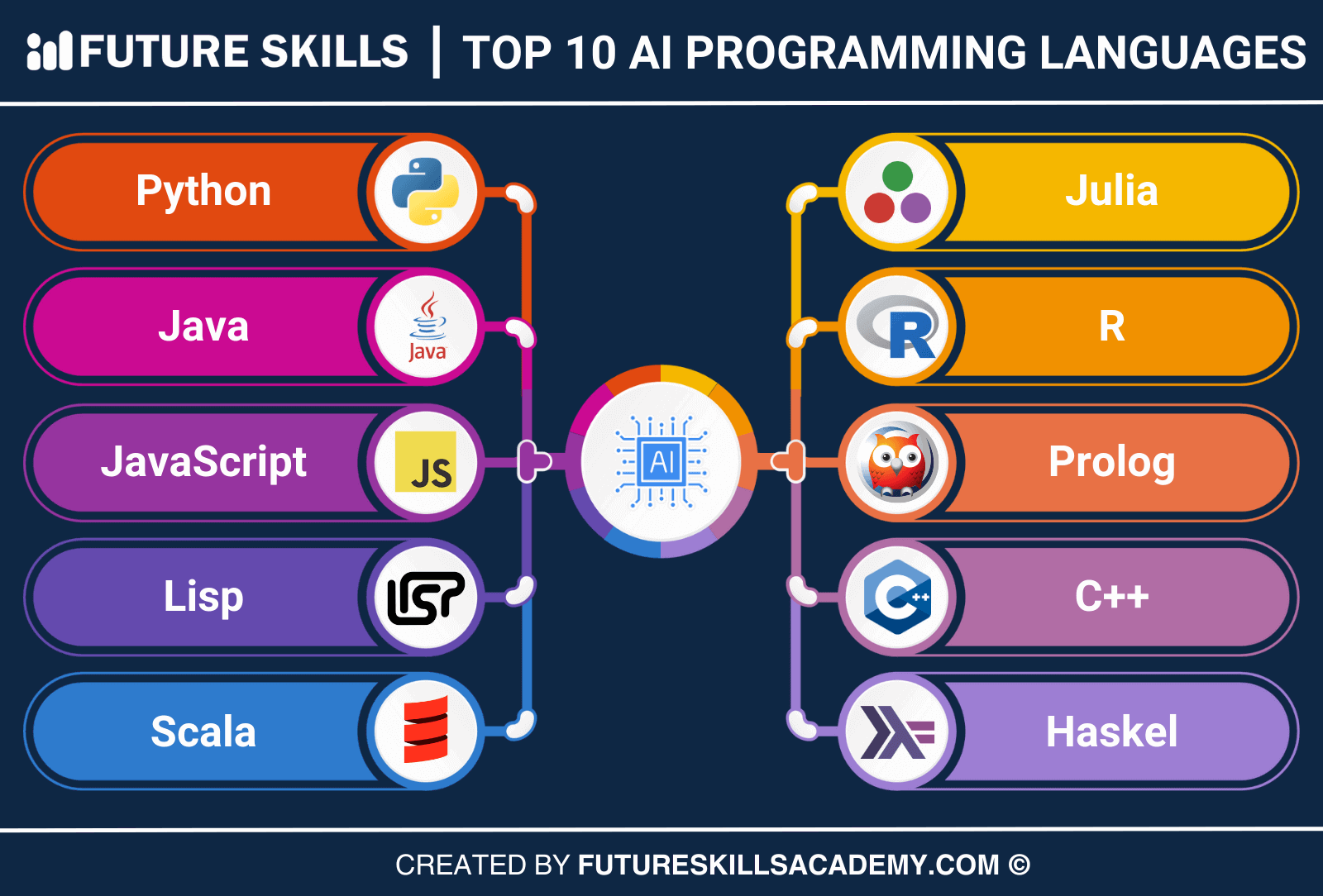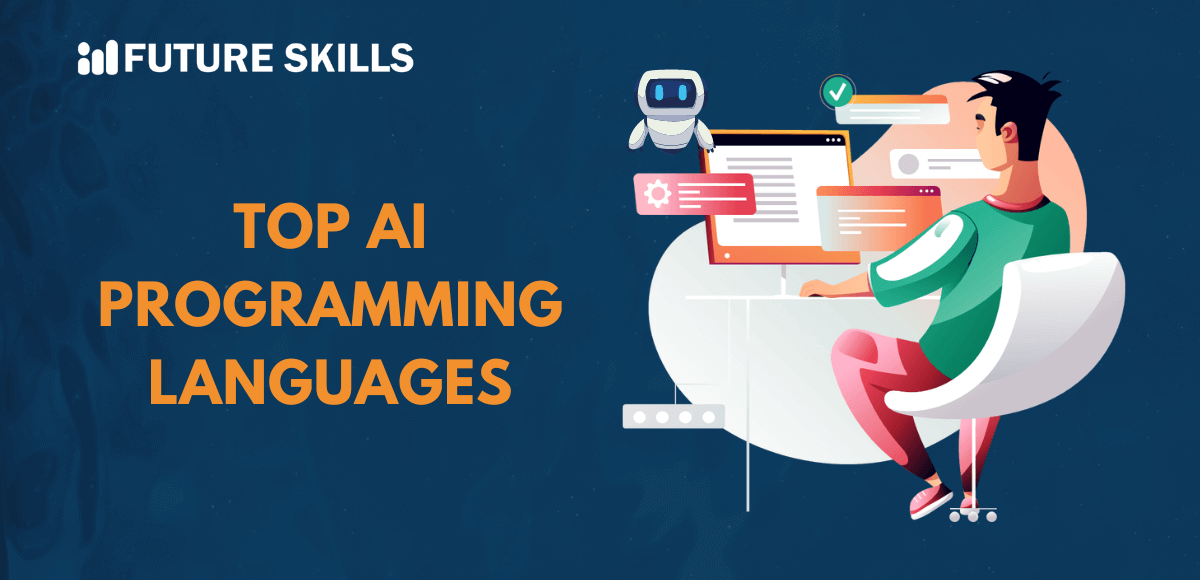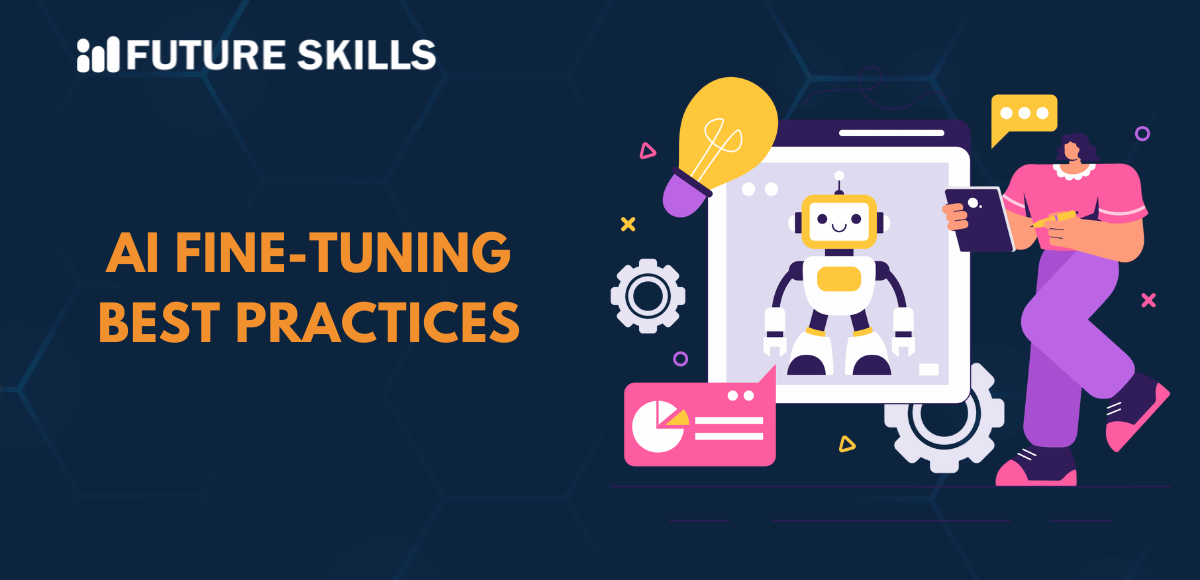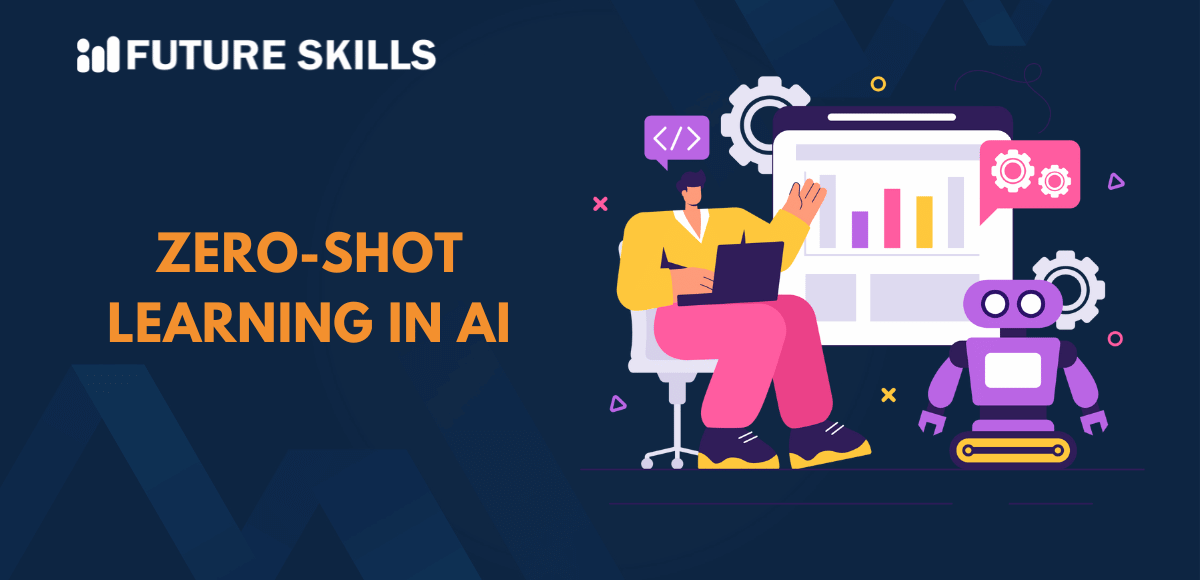The magic of AI is everywhere around us in the form of virtual assistants and different tools for workflow automation. You may find different examples of AI, such as robots playing chess like seasoned professionals, self-driving cars like the ones being made by Tesla, or smartphone apps for language translation. While there are many ways to describe AI, you can paint it as a super-intelligent computer program capable of learning and solving problems.
Therefore, you would need the best AI programming languages to create these smart computer programs. You can use programming languages to create codes for machines that guide them through a step-by-step process to achieve the desired tasks. Let us find out the most important programming languages used in the AI landscape that you must learn in 2026.
Harness the power of AI and boost creativity and innovation through our Certified AI Professional (CAIP)™ Certification program.
Why Should You Learn about AI Programming Languages?
The purpose of this post extends beyond providing an outline of the top AI programming languages that you should learn in 2026. On the contrary, it aims to help you understand the purpose of every programming language in the domain of AI. Artificial intelligence has gained popularity for performing time-consuming, repetitive, and complex tasks independently, thereby allowing people to focus on core tasks. It can also foster the faster analysis of large volumes of data to extract valuable insights for stakeholders in business. However, digging deeper into the working mechanisms of AI systems reveals that AI is not some magical technology.
AI systems need large datasets as well as different frameworks and programming languages to deliver the functionalities desired by customers. The role of programming languages in AI systems revolves around teaching computers how to think and learn like humans. However, the AI programming language list is expanding continuously with new additions. On top of it, the diverse opinions on the use of programming languages for AI can create confusion. Therefore, it is important to learn about the top languages that can help you create effective AI systems.
Learn how ChatGPT and AI can transform your career and boost your productivity with the free ChatGPT and AI Fundamentals Course.
Top Programming Languages You Should Learn for AI in 2026
If you want to dive into a career in AI in 2026, then you must familiarize yourself with top programming languages. The following list of best AI programming languages can help you understand the unique highlights of each language and how they help in the development of AI systems.

-
Python
Python is the most popular language recommended for AI due to various reasons. It is the first answer to ‘What is the most common AI programming language?’ with the assurance of advanced data visualization and analytics features. The user-friendly syntax of Python simplifies the learning curve for the programming language.
In addition, Python also offers a garbage collection feature that can facilitate automatic memory management. On top of it, Python also enables interpreted execution that supports faster development iteration without recompilation. The most powerful strength of Python is the support for scientific computing and matrices, with the help of libraries such as NumPy.
Python serves a broad range of applications in AI by powering machine learning systems, general AI prototyping, computer vision, and natural language processing applications. It also offers better performance in neural networks, face detection, predictive models, image recognition, algorithm research, and document analysis.
-
Java
The next promising choice among the most popular programming languages for AI is Java. It is an ideal pick for AI systems that you can integrate with existing business workflows and systems. The JVM serves as a valuable resource for AI deployment alongside maintaining compatibility of codebase.
You must also notice that the massive ecosystem of Java offers extensive libraries, cross-platform portability, stable runtimes, and tools. For example, Weka ML library includes classification, clustering, and regression algorithms. On the other hand, DeepLearning4j library facilitates support for neural network architectures.
Java is an ideal pick for developing standalone AI agents and embedded AI analytics in business software. It is also an effective choice to improve the capacity of recommendation engines to offer relevant suggestions.
-
JavaScript
You should also learn JavaScript in 2026 for its unique capabilities as an AI programming language. It is an important addition to this AI programming language list as it powers seamless end-to-end AI integration for web platforms. JavaScript leverages an event-driven model for updating pages and real-time management of user inputs without lag. The flexibility of the language serves as its foremost benefit, ensuring faster prototyping of code with dynamic types.
JavaScript offers the advantage of toolkits that can integrate complex ML features directly through the browser. For example, Node.js supports easier hosting and operations of machine learning models that use serverless architectures. Frameworks such as React Native help JavaScript in generating AI-powered interfaces with a single codebase.
-
Lisp
Lisp is also another powerful addition to the programming languages that you should learn for AI jobs in 2026. It may not be the first answer to “What is the most common AI programming language?” as it serves as the perfect pick for logical reasoning and rule-based AI applications.
Lisp is a functional programming language that leverages metaprogramming for real-time modification of its own code. The code syntax of Lisp features nested lists that ensure easier analysis and processing for modern machine-learning applications.
Lisp is useful for AI systems that work with complex symbolic logic, such as logic programming, automated reasoning, and natural language processing tasks. It works through natural representation of information in the form of code and data symbols. Lisp’s ability to modify its own code also ensures its utility in automated programming applications.
-
Scala
Scala is also one of the best AI programming languages that you will come across in 2026. It combines functional and object-oriented programming styles that offer support for modular data abstraction through methods and classes. Scala also offers mathematical clarity through immutability and pattern matching. It uses an advanced type system that depends on inference for flexibility. On top of it, Scala also features special libraries that extend the core advantages of Scala for AI.
Scala can support deployment of machine learning in production with its unique capabilities for development of streaming analytics pipelines and real-time model serving. It also leverages robust feature engineering alongside distributed data processing to offer better AI systems.
-
Julia
Another popular programming language that you can use for AI in 2026 is Julia. It might be a new programming language compared to other players on this list. However, it has proved useful for AI programming with its multiple dispatch technique, which ensures flexibility of functions. Furthermore, Julia also increases the speed of parallel programming and works effectively for multiple threads on a single machine or distributed loads across different machines.
Julia is a popular programming language for data science prototyping and offers libraries for data manipulation, data visualization, and machine learning. Julia’s mathematical maturity stands out as a striking highlight for engineers, analysts, and scientists.
-
R
The next prominent entry in a list of AI programming languages that you should learn in 2026 is R. It is one of the top AI programming languages for statistical computing with a broad range of applications in data science. R is the best choice in scenarios where you have to use statistical techniques for AI algorithms with probabilistic modeling, data analysis, and simulations. It features an extensive ecosystem of packages that support the visualization and manipulation of data required for AI development.
R is the perfect choice for different types of statistical machine learning use cases, such as random forest and Naïve Bayes models. It is also useful for risk modeling techniques, including survival analysis and generalized linear models.
-
Prolog
Prolog is a popular programming language for AI that offers exceptional performance in symbolic reasoning and logic programming. The declarative nature of Prolog enables developers to specify the program logic without affecting the underlying control flow.
Prolog is the recommended programming language for AI systems that focus on reasoning and knowledge representation. For example, structured databases, expert systems, formal verification, and intelligent agents use Prolog.
-
C++
The list of programming languages for AI would be incomplete without referring to C++. It is the first choice for deploying AI models in low-latency production environments. The compiled language allows developers to control memory and supports faster execution of machine learning programs with limited memory. You can also access the TensorFlow C++ interface to plug directly into TensorFlow’s machine-learning abilities.
C++ is a trusted pick for use cases in which you need reduced latency and improved scalability. For example, it is useful for embedded appliances, high-frequency algorithmic trading, and autonomous robotics.
-
Haskell
The final addition among the most common AI programming languages draws the limelight on Haskell. It is a completely functional programming language that leverages math functions for AI algorithms. One of the prominent advantages of Haskell is the lazy evaluation of code, which implies that it runs calculations only when it is mandatory.
Haskell also offers flexibility in the abstraction and declaration of reusable AI components. Therefore, it serves as the best choice for AI systems that rely on symbolism and logic. On top of it, the programming language sits perfectly with the approaches followed by data scientists for the technical definition of AI algorithms.
Want to gain practical skills in using OpenAI API and implementing API calls to facilitate LLM interactions, Enroll now in the Certified Prompt Engineering Expert (CPEE)™ Certification.
Final Words
The review of all the popular programming languages used in the domain of AI showcases the advantages of each language. On the other hand, the best AI programming languages can also create confusion regarding the ideal choice for desired applications. However, the powerful functionalities of AI programming languages offer a lot of options to craft innovative AI systems and applications.
Enroll in Certified AI Professional (CAIP)™ Certification and learn more about AI programming under the guidance of expert instructors right now.





